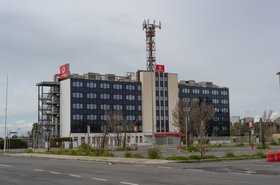The European Commissioner for Internal Markets has called for a change in how mobile spectrum is licensed.
Thierry Breton has suggested that mobile technologies licenses should be awarded to the operator that commits to faster network rollouts, and not the highest bidder.
He made the comments during this week's Mobile World Congress in Barcelona, Spain.
“European businesses and citizens are always at the center of our ambition, but we must balance the focus with the need for a competitive and modern economy,” Breton said.
“We should have the same spectrum policy throughout Europe and push for more timely and affordable options."
Spectrum is something that regularly divides opinion between telcos, given the demand for the assets, and often leaves them at loggerheads with the regulators, who issue the spectrum licenses.
Last year, the US Senate allowed the spectrum auction authority of the Federal Communications Commission (FCC) to lapse for the first time ever in March 2023.
For operators, it meant that the FCC was unable to auction more spectrum for 5G networks, and has prompted T-Mobile to ask the FCC for temporary access to its 2.5GHz spectrum band as the US carrier has sought to deploy this in specific geographic areas.
As of November, the FCC still doesn't have the authority to issue any more spectrum.
Meanwhile, in Argentina, Claro, Telecom Personal, and Movistar bemoaned the spectrum auction process in place last September.
The trio argued that the tender goes against the best international practices in spectrum allocation and puts Argentina's rollout of 5G services at risk. They also voiced concerns over the cost of the spectrum.
The industry needs to learn from 5G spectrum failings
According to Breton, the mobile industry needs to do better with the allocation of 6G spectrum.
"In regard to 6G, we cannot afford to encounter delays in the spectrum licensing process with huge disparities in timelines between member states," he said. "We cannot tolerate same the outcome as for 5G where the process after eight years is still not complete.”
“Investment is needed now to bridge the gap. No less than €200 billion ($216bn) [is] needed over the next five to six years, and this is only for completing the rollout of 5G," he said.
A separate debate on how much spectrum is required for 6G was also held during MWC. During this, Doug Kirkpatrick, president and CEO at radio-unit maker Eridan, argued that existing spectrum should be repurposed.
“From a technology perspective, we don’t need any more spectrum," said Kirkpatrick. "The challenge is not spectrum, the challenge is pushing the technologists to push the pieces that you need, we have probably spectrum in the wrong places.
"We need to think more about what kind of spectrum we want to use for what kind of applications. Moving applications from one spectrum to another is not a zero-sum game; you’re going to have a transit period in between. So we will likely need some intermediate spectrum in order to make those movements happen, but when we’re done, the answer should be zero.”







